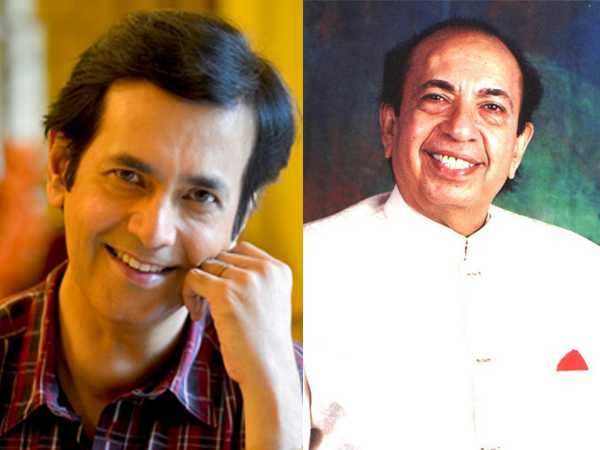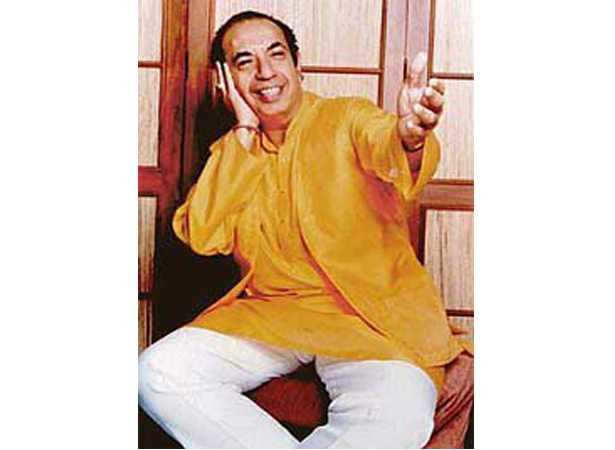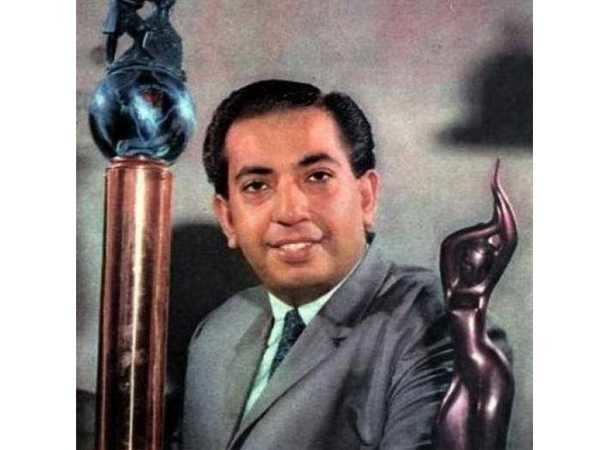
No Independence Day is celebrated without Mere desh ki dharti (Upkar) playing on radio and blaring from speakers at street corners. So also, no romantic can remain indifferent to the love and longing in the classic Chalo ek baar phir se (Gumraah) and Tum agar saath dene ka vaada karo (Humraaz). Mahendra Kapoor’s voice could convey both - the passion of patriotism and the ache of love. “After the hit song Tere pyaar ka aasra chahta hoon (Dhool Ka Phool, 1959), the late BR Chopraji took a fancy for my father. Dad was then roped in for his musical romances Gumraah, Waqt and Humraaz (between 1963- 1967), all composed by Ravi saab,” says son-singer-actor Ruhan Kapoor of the dream team of Mahendra Kapoor-BR Chopra-Ravi.
Mahendra’s association with patriotic numbers began with Mera rang de basanti chola for Manoj Kumar’s Shaheed (1965). “Dad had witnessed the freedom movement. He even began his shows with a patriotic song. Indians abroad would get ecstatic and cry!” says Ruhan. His partnership with Manoj Kumar got an extra thump with chartbusters Bharat ka rehnewala hoon (Purab Aur Paschim, 1970) and Ab ke baras (Kranti, 1981). No wonder when he passed away Manoj said, “I have lost my voice.”
MUSICAL VEIN
It was to the strains of classical music and his father’s sonorous vocals that Ruhan Kapoor and his sisters, Benu, Anu and Purna, woke up to every morning at their Peddar Road residence in South Mumbai. By the time Ruhan was born in the early ’60s, Mahendra Kapoor was already an established singer. Ruhan asserts that his father was a man of simple tastes. “Being Mahendra Kapoor’s children, we got extra attention. Dad saw to it that we didn’t get spoilt. But the day he had a good recording, the family celebrated. Dad would order kheema matar, biryani and butter chicken from Kwality restaurant near our house. Mom would spread a mat and we’d all sit together and enjoy the meal. Dad never smoked or touched alcohol in his life.”
Ruhan reveals that his mother Praveen was a great fan of Talat Mehmood. “Mom loved Talat saab’s silky voice and dad would tease her about it. But dad’s Tum agar saath dene ka waada karo (Humraaz, 1967) was her favourite.” He adds, “Dad took her along everywhere, even if it were for a dinner with the President or the Prime Minister. And she stood by him like a rock. Music is a beautiful pursuit but an unstable profession. There are ups and downs as trends change. There is both glory and darkness.”
HIS GURU RAFI
Mahendra was around 13 when he heard the Mohammed Rafi number Yahan badla wafa ka (Jugnu, 1947) and was totally mesmerised by the singer. “Dad somehow found Rafi saab’s house in Bhendi Bazaar and reached there even though it was riot affected post the 1947 Partition,” recalls Ruhan.
Winning the Metro Murphy All-India singing competition (1957), judged by maestros like Naushad and Madan Mohan made it easier for Mahendra to make inroads in B-town. “Rafi saab helped him perfect the nuances. He sang the non-film song Ilaihi koi tamanna nahin composed by Rafi saab for the competition.” Incidentally, Mahendra’s first playback hit was Aadha hai chandrama in V Shantaram’s Navrang (1958).
The singer’s association with Rafi only grew deeper with time. In fact, the first time Mahendra travelled by a plane it was with Rafi for his show in Kolkata’s where the youngster was a part of the chorus. Ruhan recalls, “They were put up in The Grand Hotel. Rafi saab was to perform after 2 am and was asked to rest till then. Unable to relax, he went to the verandah and called out to dad. He said, ‘Mahendra, look at the stars and the moon. It’s such a beautiful night. The Creator of so much beauty has no ghamand (pride). Then how can we, who’ve just sung a few songs pride on ourselves? I’ll perform namaz, you do pooja and let’s thank the Lord for His blessings’. And the two lost themselves in prayer.”
Mahendra never left an opportunity to show his gratitude towards Rafi. In 1979, a Mahendra Kapoor night was held at the Royal Albert Hall in London where Rafi’s sons, Khalid and Sayyed happened to be present. “When dad came to know of it, he asked the organisers to get him two garlands, something impossible at that hour. They were however bought from a temple in the vicinity. Then, he called the boys on stage, garlanded them, touched their feet said, ‘I am not touching your feet, I am touching the feet of my guru who’s sitting in Mumbai!’ The audiences were so moved.” Surprisingly, Rafi and Mahendra never sang together (except in Aadmi, 1968). “Rafi saab would say, ‘Log hamein kushti ladayenge (people will pitch us against one another). We are brothers. We should never let rivalry come in between us’.”
RAJ KAPOOR’S PROMISE
Though the late singer Mukesh was the voice of Raj Kapoor, the showman had great affection for Mahendra says Ruhan. “Raj Kapoor was God in Russia. Once Raj saab sang Mukeshji’s numbers from his films at a show in Russia and had audiences going crazy. Then it was dad’s turn to sing. Dad translated the songs of Humraaz and Gumrah in Russian and sang them. He received a standing ovation from an audience.” Ruhan continues, “On the way back, Rajji told dad that he’d surely make him sing in his film. Dad joked, ‘You’re a big filmmaker, you’ll forget’. Instantly, Rajji burnt his hand with a cigarette stub and said, ‘It’s Raj Kapoor’s promise that I’ll make you sing. Whenever I see this mark on my hand, I’ll be reminded of that’.” Mahendra soon sang Har dil jo pyaar karega with Mukesh for Sangam (1964).
OUT OF SYNC
The ’70s saw a paradigm shift in film music with the combination of Kishore Kumar and RD Burman taking over. “It was a highly insecure phase for all singers, not only dad. Ruhan recalls the day when an upset Mohammed Rafi called Mahendra home. “When dad reached Rafi saab’s house he found him sitting in the lawn, sad and alone. Rafi saab said, ‘Those producers who went out of their way to greet me, turn away their faces today. It hurts me’. Dad replied, ‘It’s the way of the world’. Rafi saab then asked dad to listen to a new song he had just recorded. It was Tum jo mil gaye ho (Hanste Zakhm, 1973) composer Madan Mohan). Dad cried and so did Rafi saab, such was the mood and the moment.”
ILLNESS AND DEMISE
It was a joint surgery that became a precipitating factor towards the singer’s demise. “After the operation he developed an infection in his bladder, which travelled to the kidneys.” Consequently, Mahendra had to undergo dialysis. A week before he passed away he seemed to have a premonition. “Dad told me, ‘Look after mom. I can see my parents waiting for me; I’m dying to meet them’. He was a devotee of Goddess Katyayani in the Chhatarpur temple in Delhi. Just a day before he expired he called up the priest there and told him, “Convey my last pranam to Maa. I’ll not be able to come there again’.”
WON THE FILMFARE AWARD FOR…
Chalo ek baar phir se – Gumrah (1963)
Neele gagan ke tale – Hamraaz (1967)
Aur nahi bas aur nahin – Roti Kapda Aur Makaan (1974)



SHOW COMMENTS